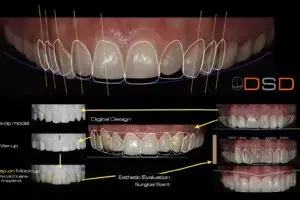Dental appointments are vital for maintaining oral health, yet fear and anxiety can make these visits daunting for many individuals. Managing fear during dental visits is essential to ensure regular check-ups and timely treatments, ultimately contributing to better oral and overall health. This guide provides practical tips to help you stay calm and relaxed during your dental appointments.
1. Choose the Right Dentist
Selecting a dentist who understands and accommodates your fears is the first step in managing anxiety. Look for a Dentist who specialises in anxiety-free care and creates a welcoming environment. A compassionate and patient-friendly dental professional can significantly reduce your fear and make your visits more pleasant.
2. Communicate Your Fears
Open communication with your dentist is crucial. Inform them about your fears and anxiety levels before the appointment. This allows the dental team to adjust their approach, whether it’s by taking extra time, explaining procedures in detail, or using gentle techniques to minimise discomfort.
3. Schedule Appointments Wisely
Timing can play a significant role in managing anxiety. Schedule your dental appointments at times when you are least likely to feel rushed or stressed. Early morning or mid-afternoon slots are often ideal, as they allow you ample time to relax before and after the appointment.
4. Practice Relaxation Techniques
Incorporating relaxation techniques can help calm your nerves before and during the appointment:
- Deep Breathing: Take slow, deep breaths to reduce stress and promote relaxation.
- Progressive Muscle Relaxation: Tense and then slowly release different muscle groups to alleviate physical tension.
- Visualisation: Imagine yourself in a peaceful and calming environment to distract from anxiety.
5. Bring a Supportive Companion
Having a trusted friend or family member accompany you to your appointment can provide emotional support and comfort. Their presence can help distract you and offer reassurance throughout the visit.

6. Use Distractions
Distractions can be effective in diverting your attention away from anxiety triggers:
- Music or Podcasts: Listening to your favorite music or an engaging podcast can help keep your mind occupied.
- Audiobooks: An interesting story can provide a mental escape during the appointment.
- Visual Aids: Watching a movie or a series during longer procedures can make the time pass more quickly.
7. Employ Positive Self-Talk
Replacing negative thoughts with positive affirmations can significantly impact your anxiety levels. Remind yourself that dental procedures are essential for your health and that you are taking a positive step towards maintaining a healthy smile.
8. Understand the Procedures
Knowledge can empower you to feel more in control. Ask your dentist to explain each step of the procedure before it begins. Understanding what to expect can reduce fear of the unknown and make the experience less intimidating.
9. Consider Sedation Options
For those with severe anxiety, sedation dentistry may be an option. Various sedation methods, such as nitrous oxide, oral sedatives, or intravenous (IV) sedation, can help you remain calm and relaxed during the procedure. Discuss these options with your dentist to determine the best fit for your needs.
10. Focus on the Benefits
Remind yourself of the long-term benefits of regular dental visits, such as preventing serious dental issues, maintaining a bright smile, and ensuring overall health. Focusing on these positive outcomes can motivate you to overcome your fear.
Conclusion
Overcoming dental anxiety and managing fear during dental visits is achievable with the right strategies and support. By choosing a compassionate dentist, practicing relaxation techniques, and employing effective distractions, you can transform your dental experience from one of anxiety to one of calm and confidence. Remember, maintaining regular dental appointments is essential for your oral and overall health, and overcoming your fears is a significant step towards a healthier, happier you.


